Question from Ashish emailed to me: As you may know, the rapid advancements in artificial intelligence (AI) and machine learning are poised to significantly impact the workforce. These technologies are expected to replace many human jobs, leading to widespread unemployment. However, the Bible teaches that those who do not work do not have the right to eat, as stated in 2 Thessalonians 3:10. Given this, I am concerned about the consequences of AI and machine learning advancements on people's livelihoods. I would like to know the Church’s perspective.
My response
Every single technological invention has posed identical challenges and fears. The result is that the people who lose their jobs will get re-trained to do other work that they enjoy. New technology enhances the productivity, wealth and lifestyle of everyone. Therefore, I believe we are in for very exciting times ahead. Great productivity, great creativity, wonderful growth.
I assume people will not need to work as hard, which will be beneficial in my estimation. We are commanded in the Bible to take every 7th year off (Lev. 25:1-7). I have never done that. I am looking forward to taking more time off in my life. I find when I am on vacation, God’s creativity is the greatest in my life and I come back enthusiastic and with new ideas to pursue. I expect creativity to burst forth from everyone, as they are free to live more relaxed, pursue the work they love, and release God's creativity in their surroundings.
I asked GROK (AI) the following question and in an instant received the answer below.
Question: Provide examples of new technology transforming society and the workplace for the better.
- GROK Answer: New technologies are reshaping society and workplaces in exciting ways, often improving efficiency, accessibility, and quality of life. Here are some examples:
- Artificial Intelligence (AI) in Healthcare: AI-powered tools, like those used in diagnostics, are transforming medicine by analyzing medical images or patient data faster and often more accurately than humans. For instance, AI systems can detect early signs of diseases like cancer in scans, leading to earlier treatments and better outcomes. In the workplace, this reduces the burden on doctors, letting them focus on patient care rather than repetitive analysis.
- Remote Work Tools: Platforms like Zoom, Slack, and collaborative software (e.g., Google Workspace) exploded in use during the pandemic and have stuck around. They’ve made remote and hybrid work seamless, giving employees flexibility, cutting commute times, and letting companies tap talent globally. Society benefits from reduced urban congestion and emissions, while workers gain better work-life balance.
- Automation and Robotics: In manufacturing, robots handle repetitive or dangerous tasks—think assembly lines or warehouse picking. This boosts productivity and safety for workers, who can shift to more creative or strategic roles. Amazon’s warehouse robots, for example, speed up order fulfillment while reducing physical strain on employees.
- Clean Energy Tech: Advances in solar panels, wind turbines, and battery storage (like Tesla’s Powerwall) are decarbonizing energy grids. This not only fights climate change but also creates jobs in renewable sectors. In workplaces, businesses save on energy costs and can market themselves as sustainable, appealing to eco-conscious consumers.
- 3D Printing: This tech is revolutionizing industries like construction and healthcare. Companies are printing affordable homes in days, addressing housing shortages, while in medicine, custom prosthetics or even organ tissues are being developed. It empowers small businesses and innovators by cutting production costs and time.
- Digital Education Platforms: Tools like Khan Academy or Coursera have democratized learning, offering free or low-cost education worldwide. In workplaces, employees upskill through online courses, keeping industries competitive. Society gains as education gaps shrink, especially in underserved areas.
These examples show how tech can solve problems, boost efficiency, and open opportunities—though they often come with challenges like adaptation or job displacement, which need thoughtful management.
GROK (AI) answers a 2nd question: In the past, when new technology has replaced jobs, what has happened to those who became unemployed?
Historically, when new technology has replaced jobs, the outcomes for displaced workers have varied depending on the era, the technology, and societal responses. Here’s a look at what’s typically happened:
- Short-Term Disruption: In the immediate aftermath, workers often faced unemployment or underemployment. For example, during the Industrial Revolution (late 18th to early 19th century), mechanized looms displaced handweavers. Many skilled artisans lost their livelihoods and struggled to find work, leading to poverty and unrest—like the Luddite riots, where workers smashed machines in protest.
- Shift to New Roles: Over time, technology often created new jobs that didn’t exist before. The rise of factories after industrialization didn’t just eliminate manual labor; it spawned demand for machine operators, engineers, and managers. By the early 20th century, the automobile industry displaced blacksmiths and horse-related trades but employed millions in manufacturing, road construction, and services like gas stations.
- Skill Gaps and Retraining Challenges: Those who adapted thrived, but not everyone could. When computers automated clerical work in the mid-20th century (e.g., replacing typists and bookkeepers), workers with access to education or retraining moved into programming or tech support. Older workers or those in rural areas often lagged, sometimes exiting the workforce entirely or settling for lower-paying jobs.
- Economic Growth, Uneven Benefits: Technological leaps—like electricity or assembly lines—boosted productivity and grew economies, raising living standards overall. But the gains weren’t evenly distributed. During the transition from agriculture to industry, displaced farmers in the 19th and early 20th centuries often moved to cities, taking low-wage factory jobs or facing urban poverty if they couldn’t adapt.
- Social and Government Responses: Outcomes depended heavily on support systems. In the Great Depression, exacerbated by mechanization in agriculture, unemployed workers benefited (or didn’t) based on New Deal programs like job creation. Contrast that with Britain’s early industrialization, where minimal safety nets left many destitute until labor unions and reforms kicked in.
- Long-Term Resilience: History shows humans tend to find new niches. The telephone, for instance, eliminated the need for telegraph operators in the late 19th century, but it birthed a telecom industry employing switchboard operators, linemen, and eventually engineers for modern networks. Most displaced workers, or their kids, eventually found footing in expanding sectors.
- A modern example: When ATMs rolled out in the 1970s, bank tellers didn’t vanish—banks opened more branches with cheaper operations, and tellers shifted to customer service roles. Still, the pace of change matters. Today’s AI and automation are moving faster than past shifts, testing how quickly workers and systems can adjust. Historically, those with flexibility, education, or support weathered the storm best.
Free Video Event: April 14-23, 2025
Counseled by God - Register now!
CLU Course of the Month:
COU202 Counseled by God
Request 40% tuition discount until April 30th when ordering here.
Add any second course for 40% tuition discount
What if you already own the “Course of the Month”?
Order ANY COMBO of two courses for 40% tuition discount on each!
Payment plans are available and start dates are flexible.
Master the Bible and Spirit-filled living.
What are you waiting for? Enroll in CLU today.
Fan the flames of revival by sharing this blog with your friends on social media!
Related Blogs:
Business and Creativity


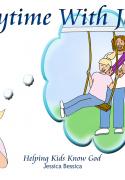
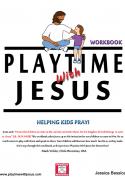

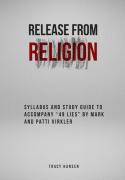
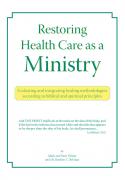
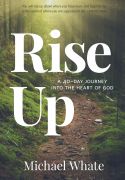

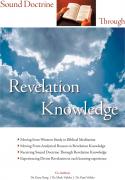

Add new comment